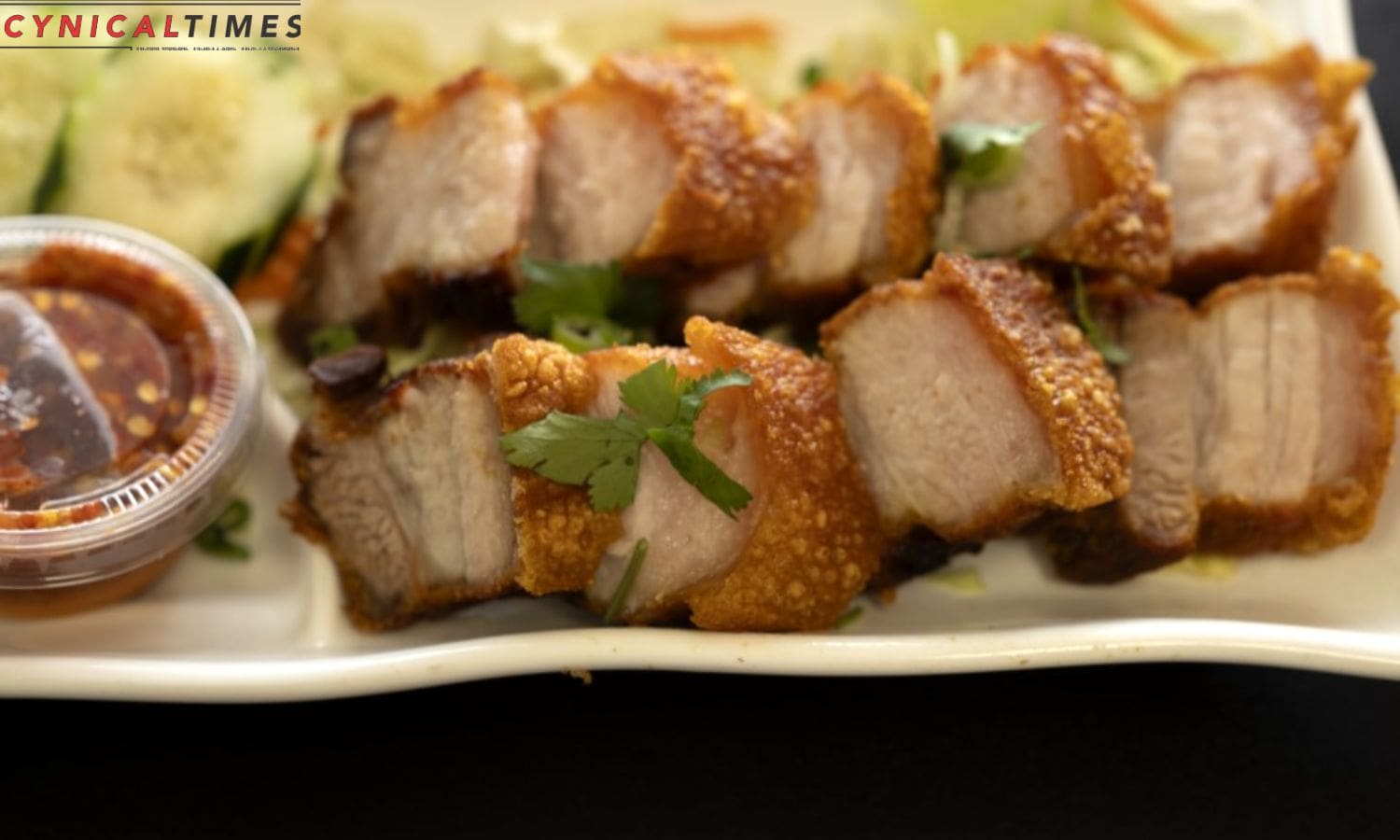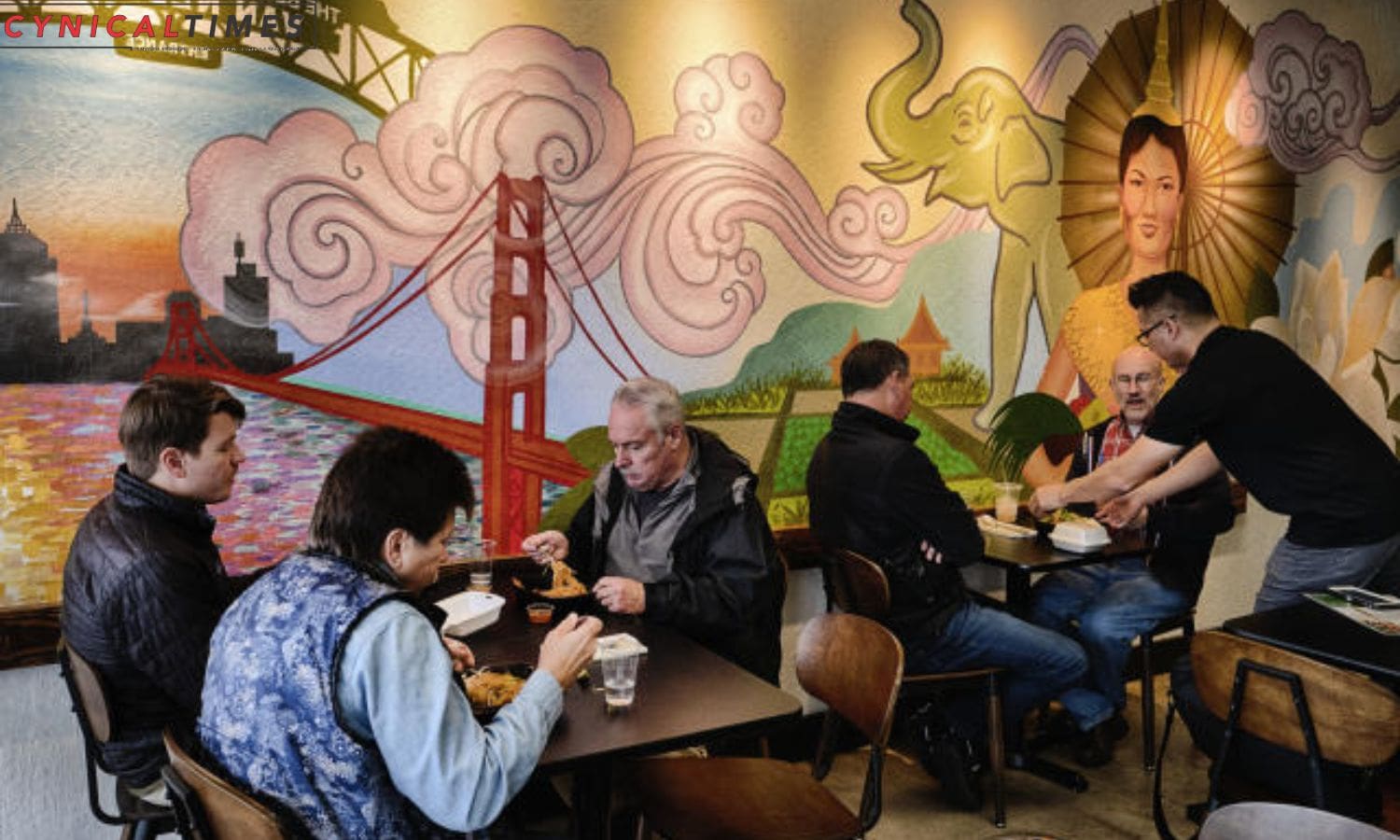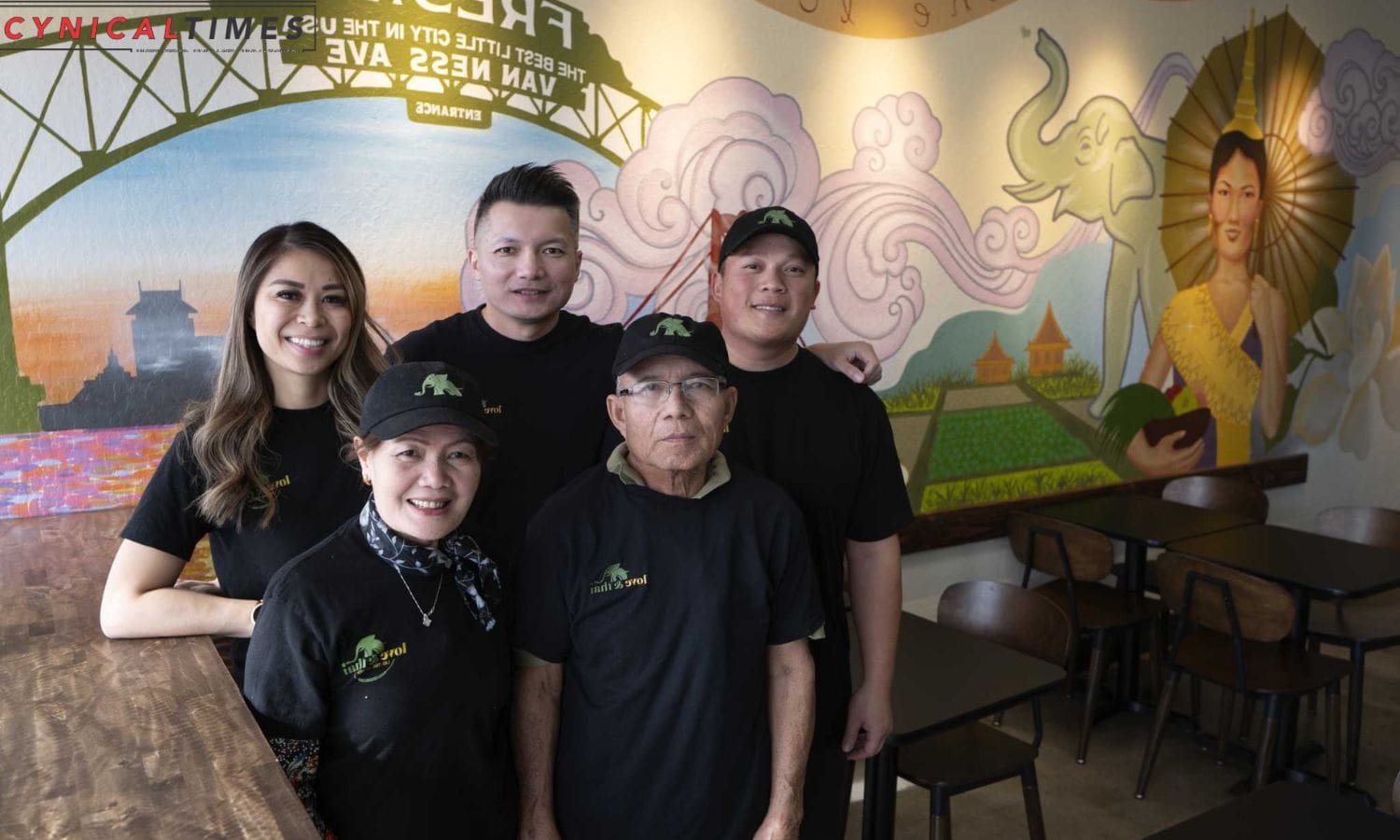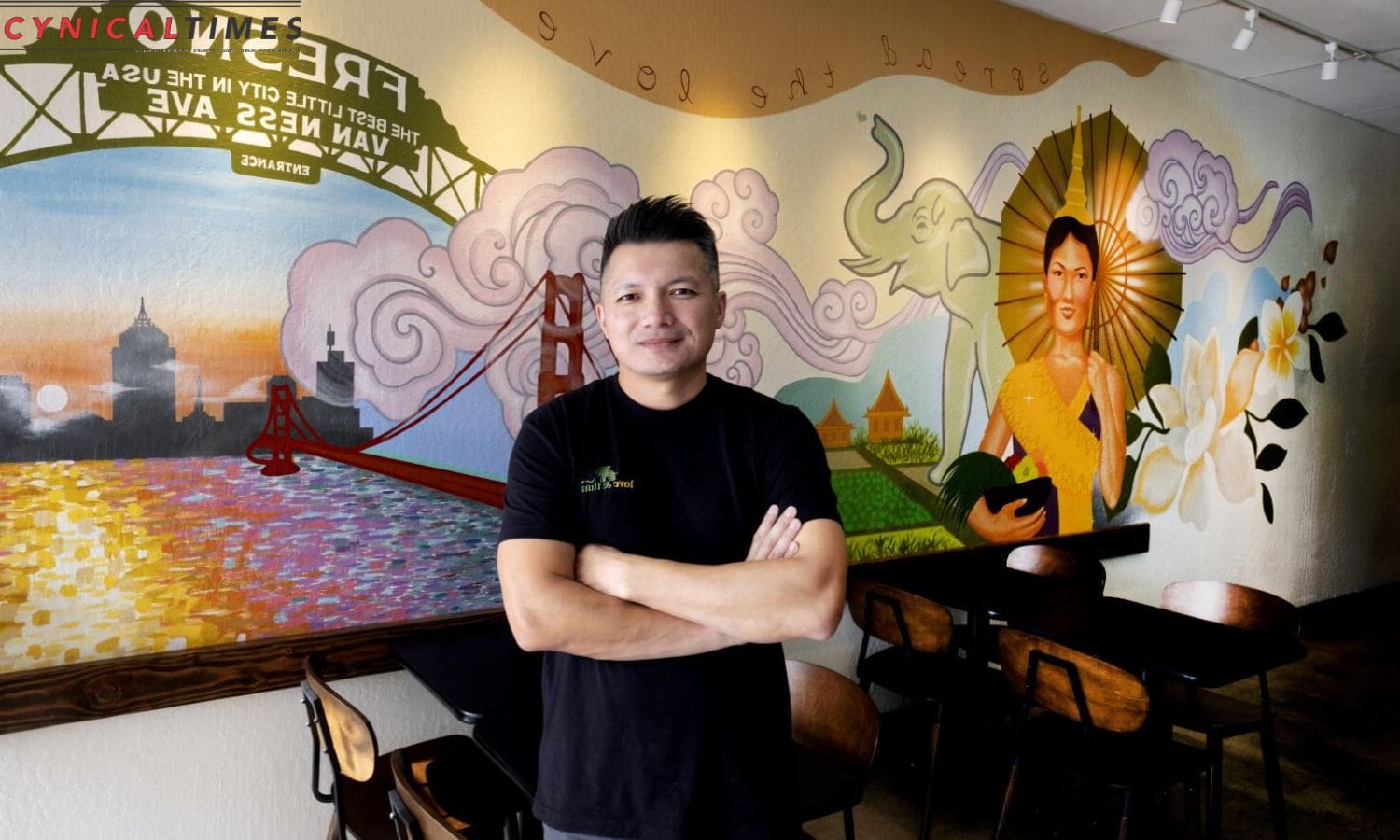Love and Thai Journey: In the face of baseless accusations and harassment, the owner of Love & Thai, a beloved Asian American restaurant, has embarked on a journey to combat stereotypes and reclaim their narrative.
This article explores the historical roots of the dog meat myth, its impact on Asian American communities, and the resilience and community support that has helped Love & Thai overcome adversity.
Through rejecting stereotypes and promoting cultural understanding, Love & Thai’s story serves as a powerful lesson for all seeking mastery in overcoming unjust assumptions.
Key Takeaways Of Love and Thai Journey
- False accusations and harassment can have a devastating impact on individuals and businesses, affecting livelihood and mental well-being.
- Stereotypes and false associations between Asian communities and dog meat consumption have historical roots in xenophobia and racism.
- Asian American communities actively challenge and debunk stereotypes through initiatives like food festivals, cooking classes, and online platforms.
- Overcoming adversity is possible with resilience, community support, and collaboration with local businesses and artists.


False Accusations and Harassment: Love & Thai Owner Faces Baseless Claims
The Love & Thai owner, David Rasavong, has faced baseless claims of dog-eating and subsequent harassment. These false accusations, spread through social media, have had a devastating impact on Rasavong’s life and business. Despite there being no evidence to support the claims, they gained traction and led to a wave of online abuse and threats directed at Rasavong and his family.
The consequences were so severe that the restaurant had to close its previous location due to safety concerns. This unjustified harassment not only affected Rasavong’s livelihood but also took a toll on his mental and emotional well-being. It is disheartening to witness the power of misinformation and the impact it can have on innocent individuals.
Rasavong’s experience highlights the urgent need for responsible use of social media and the importance of verifying information before jumping to conclusions.
Historical Roots of Stereotypes: Dog Meat Myth and Asian American Communities
The perpetuation of the dog meat myth linking Asian American communities to the consumption of dog meat has its roots in xenophobia dating back over 150 years against Chinese immigrants in the United States. This historical prejudice has had a lasting impact on Asian communities, fueling stereotypes that continue to persist today.
It is essential to understand the historical context behind these stereotypes to challenge and dismantle them effectively.
Here are four key points to consider:
- Historical xenophobia: The dog meat myth emerged as a result of xenophobic attitudes towards Chinese immigrants in the 19th century.
- Racist stereotypes: The false association between Asian communities and dog meat consumption reflects the broader history of racism and discrimination faced by Asian Americans.
- Cultural diversity: Asian American communities are incredibly diverse, encompassing various ethnicities, languages, and traditions. Generalizations about dog meat consumption ignore this rich cultural tapestry.
- Harmful impact: Perpetuating these stereotypes not only perpetuates harmful biases but also contributes to the marginalization and discrimination of Asian American communities.


Also Read: Sacramento Home Damaged in Late Night Gunfire Barrage
Reclaiming the Narrative: Asian American Communities Combat Stereotypes
Asian American communities actively challenge and debunk stereotypes through efforts to reclaim the narrative surrounding their cultural cuisines. By taking control of their own stories, they are combatting negative portrayals and fostering a deeper understanding of the richness and diversity of Asian American food traditions.
Through initiatives like food festivals, cooking classes, and online platforms, community members are sharing authentic recipes, personal stories, and cultural histories that challenge preconceived notions. These efforts not only showcase the complexity and depth of Asian American cuisines but also highlight the contributions of Asian Americans to the culinary world.
Overcoming Adversity: Love & Thai’s Resilience and Community Support
Overcoming adversity, Love & Thai demonstrated resilience and received valuable community support during their journey beyond unfounded dog-eating accusations. Their ability to bounce back and rebuild their business is a testament to their determination and the power of community solidarity.
Here are four ways in which Love & Thai overcame adversity and benefited from the support of their community:
- Collaboration with property managers: Love & Thai worked closely with property managers who understood their situation and helped them find a new restaurant space. This collaboration allowed them to start afresh and continue serving their loyal customers.
- Support from graphic designers: Local graphic designers volunteered their time and expertise to create eye-catching menus and promotional materials for Love & Thai. This support helped the restaurant regain visibility and attract new customers.
- Assistance from local artists: Love & Thai reached out to local artists who created beautiful murals and artwork for their new restaurant space. These artistic additions not only enhanced the dining experience but also showcased the unity and creativity of the community.
- Patronage from loyal customers: Throughout their ordeal, Love & Thai’s loyal customers stood by them, showing their unwavering support by dining at the new location and spreading positive word-of-mouth. This patronage played a crucial role in the restaurant’s recovery and success.
Love & Thai’s resilience, combined with the unwavering support of their community, allowed them to overcome the challenges they faced and emerge stronger than ever. Their story serves as an inspiration to others facing adversity, reminding us of the power of resilience and the importance of community support.
Lessons Learned and Moving Forward: Rejection of Stereotypes and Cultural Understanding
As Love & Thai’s journey beyond unfounded dog-eating accusations continues, an important lesson learned is the necessity for the rejection of stereotypes and the promotion of cultural understanding. David Rasavong’s experience with false accusations highlighted the harmful impact of stereotypes and the need for society to move beyond preconceived notions. To foster cultural understanding, it is crucial to engage in open dialogue, challenge assumptions, and educate ourselves about different cultures. By rejecting stereotypes, we can create a more inclusive and empathetic society where diversity is celebrated. To illustrate the importance of rejecting stereotypes, consider the following table:
| Stereotype | Cultural Reality | Lesson Learned |
|---|---|---|
| All Asians eat dogs | Eating dog meat is not a widespread practice in all Asian cultures | Stereotypes perpetuate discrimination and can cause harm to individuals and communities |
| Thai cuisine is only spicy | Thai cuisine offers a wide range of flavors, not just spicy dishes | Stereotypes limit our understanding and appreciation of different cultures |
| Asians are bad drivers | Driving skills vary among individuals regardless of their ethnicity | Stereotypes overlook individual abilities and contribute to unfair judgments |
Moving forward, it is essential to embrace cultural understanding and reject stereotypes, fostering an environment of respect and appreciation for diverse perspectives.


Conclusion Of Love and Thai Journey
The journey of Love & Thai beyond unfounded dog-eating accusations highlights the importance of challenging stereotypes and promoting cultural understanding.
By addressing the false accusations and harassment faced by the owner, the Asian American community is reclaiming the narrative and combating harmful stereotypes.
Through resilience and community support, Love & Thai has overcome adversity and served as an inspiration for rejecting stereotypes.
This experience serves as a valuable lesson in promoting empathy, innovation, and engagement in our society.
Our Reader’s Queries
Do Thai people say I love you?
In Thai language, the expression ‘I love you’ varies depending on the gender of the speaker and the recipient. If a male says it to a female, it is ‘phom rak khun’. On the other hand, if a female says it to a male, it is ‘chan rak khun’. However, these terms are considered formal or traditional when it comes to expressing love and may not always be used.
What is Thai culture?
Thai culture places a high value on peace and harmony, and frowns upon sudden outbursts of anger or conflict. As a visitor, it’s important to be mindful of this and avoid creating any unnecessary tension. In the event of a disagreement, it’s best to handle it with a smile and without assigning blame. The Thai concept of sanuk emphasizes the importance of having fun in life, and you’ll often see locals displaying positive emotions during social interactions.

